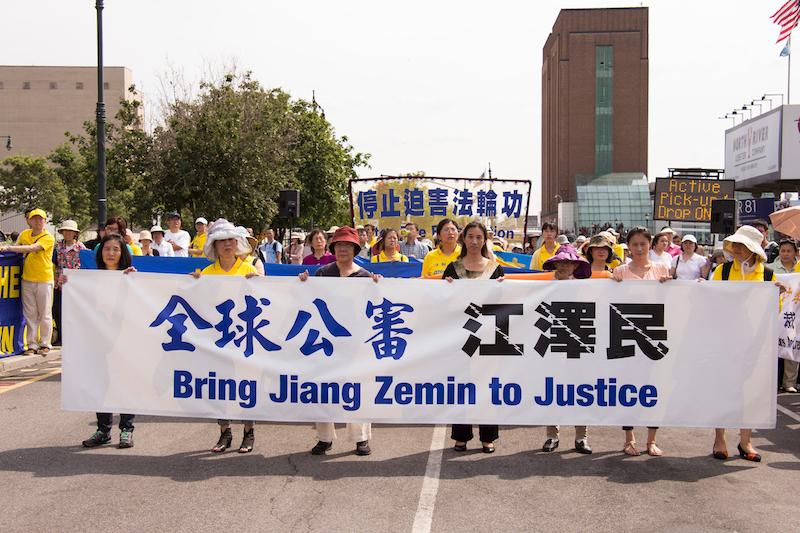A Chinese civic movement to put former regime head Jiang Zemin on trial for his murderous anti-Falun Gong campaign, has attracted millions of supporters from the rest of East Asia. To date, more than 1.8 million people from Hong Kong, Macau, Taiwan, Indonesia, Malaysia, Singapore, South Korea and Japan have signed a petition that calls upon China’s supreme judicial bodies to prosecute Jiang.
Jiang, aside from encouraging and benefiting politically from a staggering degree of corruption in the state and Communist Party apparatus during and after his time in power from 1989 to 2004, started the ongoing persecution of the Falun Gong spiritual practice in 1999. The bloody repression, often glossed over in the climate of China’s economic rise, has tens of millions of victims.

According to Minghui.org, a website that carries first-hand information about the persecution, over 209,800 Falun Gong practitioners from around the world have filed criminal complaints with the Chinese regime’s highest court and prosecuting body since mid-2014. The plaintiffs accuse Jiang of crimes against humanity and genocide.
According to Theresa Chu, Taiwanese human rights lawyer and coordinator of the petition drive in the Asia-Pacific region, the overwhelming majority of signatures came from people living in Japan, South Korea, and Taiwan, for a total of about 1.6 million. The action has been on for over a year, led by volunteers who solicit signatures from their friends, family, and strangers, often in person.
“If the Chinese regime does not put on trial Jiang Zemin according to its law, we can, in accordance with the supplementary rules of the jurisdiction of the International Criminal Court, ask the chief prosecutor to investigate,” Chu said in an interview with New York-based New Tang Dynasty Television.

The nationwide persecution against Falun Gong, a mind-and-body discipline rooted in ancient Chinese traditions, began on July 20, 1999, when Jiang acted on his fears that the large number of adherents — 70 million according to one state survey — would undermine the reign of the Chinese Communist Party. Millions of Falun Gong practitioners have been thrown into prisons, ideological re-education centers, and labor camps, while being subjected to torture, forced labor and brainwashing.
Investigations by human rights researchers suggest that over a million prisoners have been murdered by the authorities for their internal organs. A study published in June by David Kilgour, a former member of Canadian Parliament, David Matas, a Canadian lawyer, and American writer Ethan Gutmann found that organs harvested from Falun Gong prisoners made up the vast majority of the 1.5 million organ transplants in China since 2000.

Chu is not optimistic that the Chinese regime, at least not under its present one-party system, will carry out a serious investigation of the organ harvesting allegations, and neither would it send Jiang to the international criminal court.
As for China’s announcement in September this year that it would work more closely with the United Nations Human Rights Council, Chu said any form of human rights cooperation would be meaningful only if the Chinese regime would end its 17-year persecution of Falun Gong and hand over evidence of Jiang’s crimes to the U.N., while allowing independent investigations in China.
“If China really wants to cooperate with the U.N.,” Chu said, “it should abandon its autocratic system and become a democratic country.”
Minghui reports that similar petitions are taking off within mainland China despite strict regime controls. In Chaoyang, a city of half a million in northern China’s Liaoning Province, over 30,000 local residents had signed the petition to bring Jiang to justice. Over 6,000 residents in Zhangjiakou and nearby areas in neighboring Hebei Province had also signed their names.






